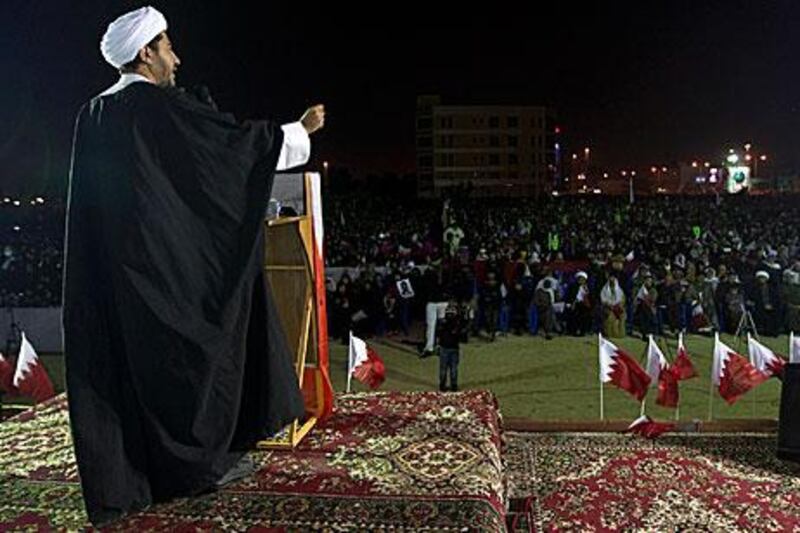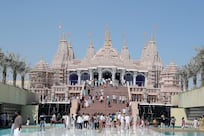MANAMA // Bahraini opposition parties launched a week-long "sit-in" for political reforms yesterday and vowed to take their campaign to the centre of last year's protest in Manama.
"This is a dress rehearsal for the return. We will return! We will return! Soon our sit-in will not be here but at the Pearl Roundabout," said poet Ayat Al Qormozi, who became a face of the Arab Spring movement after she was jailed for reading a poem criticising the king at Pearl Roundabout last year.
She was addressing a crowd of more than 10,000 people at the rally outside Manama, where anti-government protests last year were crushed by Bahraini forces and troops from Saudi Arabia.
Pearl Roundabout, a large traffic junction in Manama where the protesters camped out and rallied for a month, has since been closed by security forces who monitor the area closely.
Bahrain, a key US and Saudi ally, has been in turmoil since the uprising last year.
The opposition are trying to sustain pressure on the government, dominated by the Sunni Muslim Al Khalifa family, ahead of the February 14 anniversary of the uprising. The reforms they want include an elected government and reduced powers for the Al Khalifa family.
Sheikh Ali Salman, leader of the largest opposition party Wefaq, called on activists to keep the protests peaceful but warned that intelligence agencies and pro-government militias would act as agent provocateurs in coming weeks.
He called on activists to use only Bahraini flags during the week of protest and avoid using party or sectarian symbols.
Opposition groups draw wide support from Bahrain's majority Shiite population, which accuses the ruling elite of political and economic marginalisation. The government says Shiites have a sectarian agenda coordinated with Iran - which they deny.
Mr Salman said the protest movement would continue after February 14 and the country would not return to normal until the ruling elite ends its monopoly on power and 14 protest leaders convicted for leading demonstrations are released.





